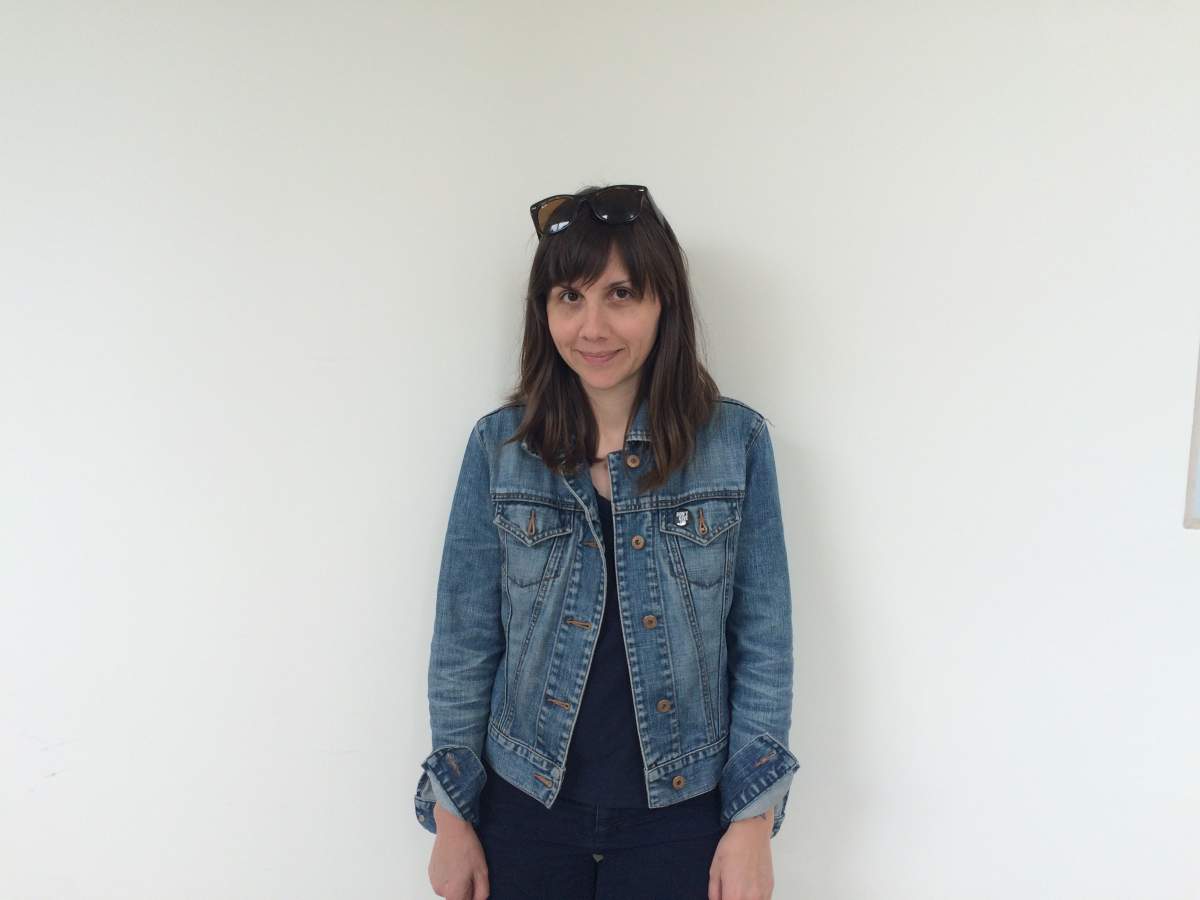
Jessica Hopper is a music and pop culture critic at Pitchfork, the Chicago-based Internet publication for music criticism and commentary. Hopper recently published The First Collection of Criticism by a Living Female Rock Critic. On Tuesday, August 4th Hopper visited Bloomington, where she gave a lecture and reading at the Monroe County Public Library. During her visit, Hopper spoke with WFIU's Betsy Shepherd about her career in rock criticism.
Betsy Shepherd: What first got you started in music writing?
Jessica Hopper: I mean, I started because someone told me I couldn't do this... I was about 15 years old and living in Minneapolis. This is about 1990. I was obsessed with a band called Babes in Toyland.
They were an all-female kind of post-punk trio that was getting their start, and how they were getting covered in the local music press in Minneapolis; you know, they were saying, 'They're caustic, and they're amateur, and they're screaming...'
They're writing about it as if it was a bad thing, and I thought, isn't that why we turn to punk-rock? Isn't that the liberation that we seek here? They're the band that showed me that there was space for me within music. They were the first women I had seen on stage, and it kind of meant everything to me. And I was seeing them be, sort of, misunderstood and in the ways that women's art usually is within the music press.
They were the first women I had seen on stage, and it kind of meant everything to me.
I had called a local music publication, and said, "So, you've been covering Babes in Toyland, I know you just put out this article in the new issue, but I think you need to let me write a corrective."
They're like, "How old are you?"
And I said, "I'm 15."
They said, "Have you ever written before?"
And I was like, "Homework, yeah...of course." And so, they all but hung up on me.
I think I waited like 10 days for someone to call me back and I just realized that was just not going to happen. I wasn't necessarily going to be taken seriously, and I knew it. So, I decided I was just going to make my own publication.
I did what any enterprising punk teenager did in the '90s and made a fanzine. It's pretty much gone from there.
Betsy Shepherd: Jessica, you write a lot about the term "fan-girl"- how it's often been used dismissively to trivialize female perspectives on pop culture. Can you talk some about your efforts to reclaim the term "fan-girl?"
Jessica Hopper: I think I've gotten pretty pointed about it in the last year. One of the ways that we can invite young women into music is by appreciating the fan-girl. Historically, there's this sort of myth of the fan-girl that young women are not serious. That we just see the external. We assume that they're into things because the person's image is cute to them or because they want to date the boy or be the girl.
In 2015, online communities for women to discuss their interests in musicwhether it is Taylor Swift or whether it is teeny, tiny, punk bands or hip-hop, whatever you're intoare actually some of the safest spaces for young women where they aren't attacked for liking music in the wrong way or liking the wrong type of music. Because there's very much this feeling that there is one authentic way to be a fan, and that the one true, authentic music is rock and roll. Bob Dylan is god. [The] Beatles are the best band ever, and if it's not The Beatles then it's Led Zeppelin or it's The Rolling Stones or it's The Who.
When we elevateor at least just respectfan-girls, we can bring women into music rather than alienate them and marginalize them and tell them that they don't actually belong here. What would be different if we stopped marginalizing women who are obsessed with, say, Ariana Grande? And [stopped] pushing women towards [the idea] that there's only one way to be authentic with music and that what women make, and their image and all that is fake. And we never really get to participate. And we never really get to matter. And we never really get to have a voice.






